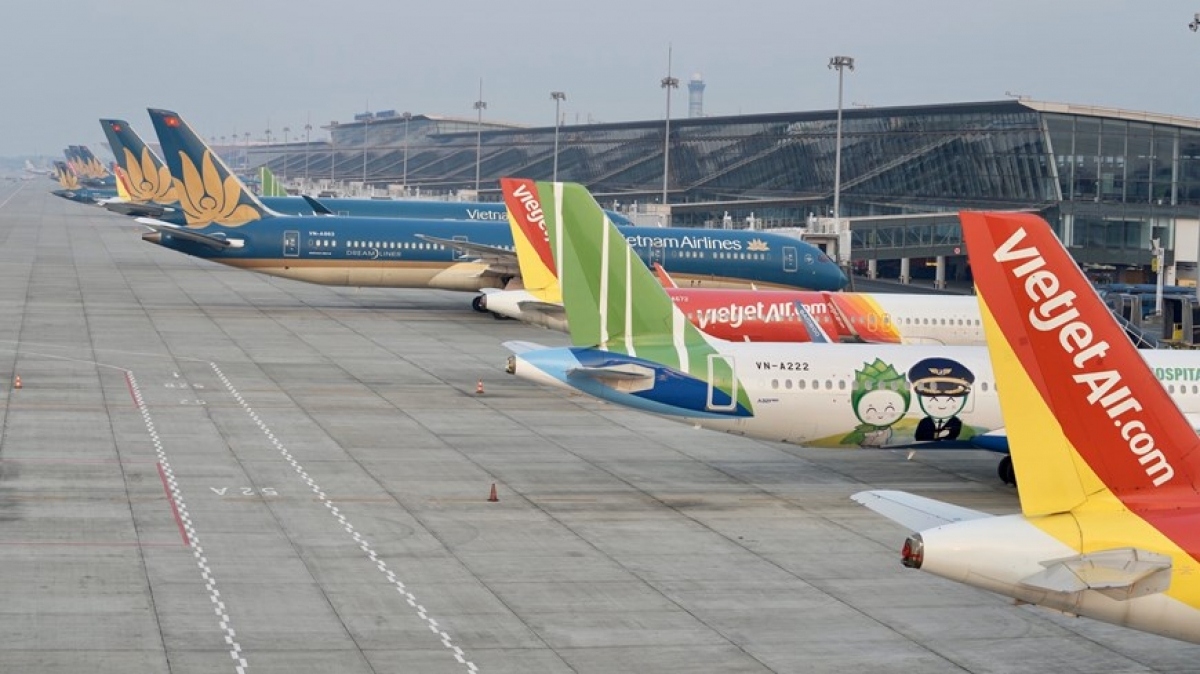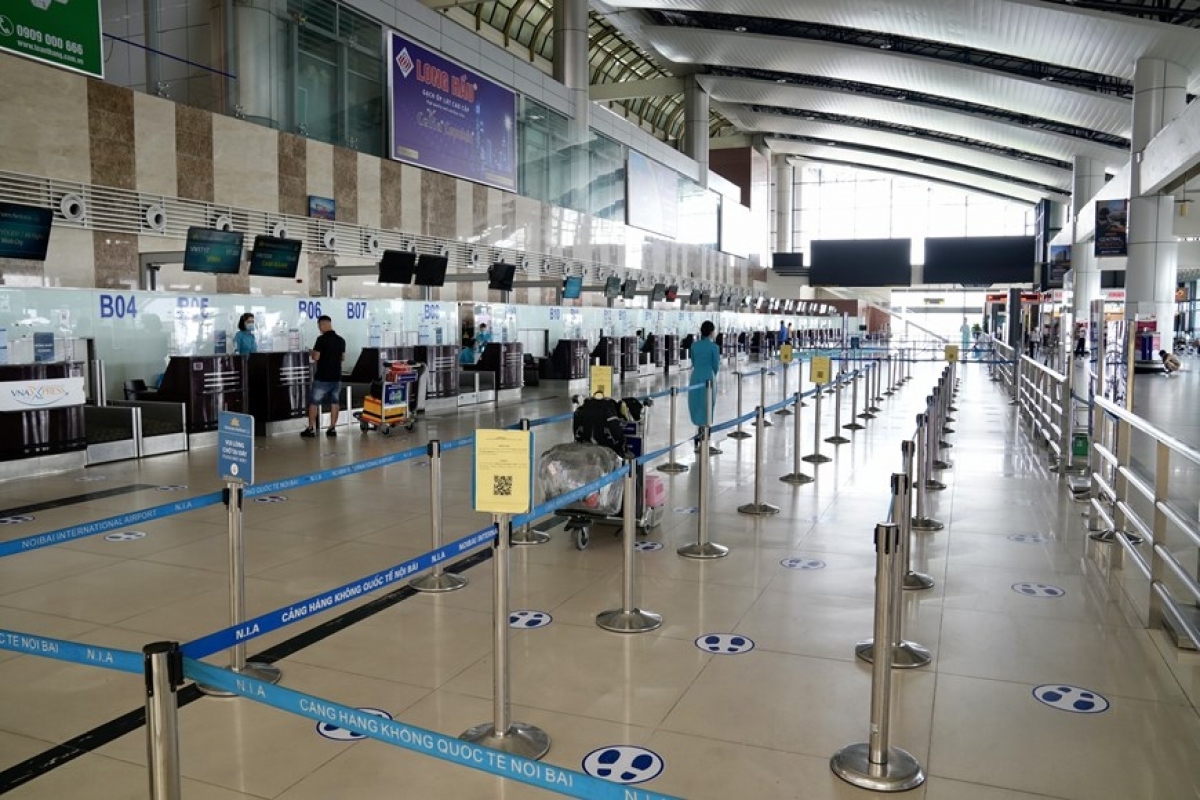How to ease risk of bankruptcy for local aviation sector amid COVID-19 fight
VOV.VN - In order to revive local airlines amid their current circumstances, Government support remains crucial to creating the best possible conditions for them to restore their operations amid the risk of bankruptcy due to the increasingly complicated nature of the COVID-19) pandemic.

The Vietnam Aviation Business Association (VABA) has recently submitted an official document to Minister of Planning and Investment Nguyen Chi Dung proposing urgent solutions aimed at expanding and carrying out a credit support scheme. This would aim to help Vietnamese airlines cope with the negative impact of the COVID-19 pandemic.
Bui Doan Ne, general secretary of the Vietnam Air Transport Association, said that the short-term debts of three airlines, including Vietnam Airlines, VietJet, and Bamboo Airways, amount to VND36,000 billion, VND20,000 billion of which relates to Vietnam Airlines.
“To maintain minimum operations during the pandemic period, airlines have to spend over VND100 billion per day. The accumulated financial and asset resources of the firms have been exhausted, while they find it difficult to have loan accessing opportunities and are facing high borrowing costs. Additionally the Government's support policies remain slow-paced for implementation," Ne said.
According to VABA's assessment, local airlines continue to suffer a sharp fall in revenue and face the risk of cash flow depletion. Therefore, they require significant assistance in terms of loans, mechanisms, and policies implemented by the State as the best way to overcome the damage done by the COVID-19 pandemic.
The VABA have also proposed providing these firms with a credit package of approximately VND25,000 billion, with a preferential interest rate reduction of 4%, and a term of between three and five years to maintain resources, along with capital for recovery and development. In addition, aviation businesses in general are entitled to apply a reduced interest rate of 2% according to Government Resolution No. 84 dated May 29, 2020.

Another proposal put forward by the VABA includes reducing the environmental protection tax at a higher rate for airlines.
Emphasizing solution for a large-scale vaccine rollout and considering the implementation of "vaccine passports", the VABA has asked the Government to direct the loosening of regulations on travel and isolation for those who have received both doses of COVID-19 vaccines. This could be done as a way of easing entry and isolation regulations for fully vaccinated passengers and planning to reopen international flights in the near future.
According to Dinh Viet Thang, director of the Civil Aviation Authority of Vietnam (CAAV), the COVID-19 pandemic has greatly affected all countries globally, along with the world economy, and especially the aviation industry. Up to now, according to the International Air Transport Association (IATA), losses suffering by the global aviation total over US$ 200 billion.
Thang also acknowledged that Vietnamese airlines have also been heavily affected due to only between 1% and 2% of their combined fleet of 250 aircraft being put into operation during the COVID-19 pandemic.
Currently, the aviation sector has only partially recovered, with up to 80% of the fleet remaining at storage facilities.
The CAAV head therefore underscored the urgent need to reopen regular international flights as soon as possible and also proposed a mechanism aimed at applying vaccine passports to passengers.
“Vaccination can prevent disease in the long run, but to be able to restore regular international passenger transport quickly, it is necessary to apply 4.0 technology in certifying that passengers have been already vaccinated or have tested negative.
Using a vaccine passport, combined with a passenger reporting negative PCR test results, is seen an effective solution to restart the regular international air transport market. In addition, the use of electronic data will help limit data falsification,” Thang added.

